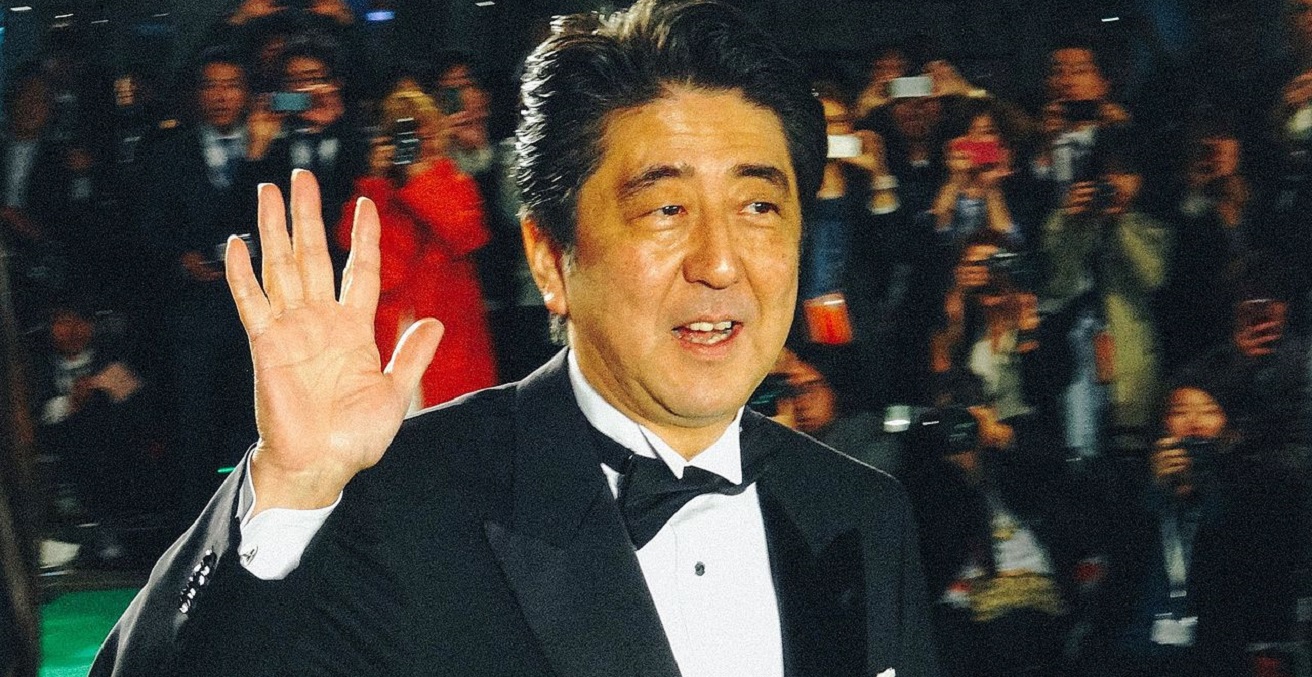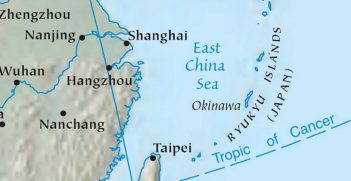Powerful But Not Popular: The Perennial Shinzo Abe

Despite maintaining a commanding majority in last weekend’s Japanese elections, neither Shinzo Abe nor his Liberal Democratic Party are popular and constitutional revision, the prime minister’s pet project, may still be a long shot.
Japanese Prime Minister Shinzo Abe cruised to an easy win in Sunday’s election. The ruling coalition captured 313 of the 465 seats, giving it a two-thirds majority in the Lower House. This was, however, in spite of public discontent with the government. Polls in the months before the election showed cabinet approval ratings drifting down to the 30s, with one poll four days before the election showing that 51 per cent did not want Abe to continue as prime minister.
Rather than his personal or political appeal, it was opposition politics that handed Abe his crushing victory. Weakened by internal disagreement, the largest opposition group, the Democratic Party (DP), was in no state to contest the election.
The DP disintegrated after the emergence of a new party, the Party of Hope, led by Tokyo Governor Yuriko Koike. Many DP candidates moved to the Party of Hope, but Koike’s incoherent platform, her exclusion of liberal DP members—15 of whom formed their own Constitutional Democratic Party (CDP)—and her ambiguity around whether she would give up her governorship to run in the Diet herself (she didn’t) did not sell well with a public tired of petty politics. The Party of Hope, after initially showing promise, tanked, capturing only 50 seats, and splitting a previously coordinated vote among opposition parties in the nation’s electoral districts.
As in recent elections, the result is a government that is powerful but not popular. While the Liberal Democratic Party (LDP) received 48 per cent of overall vote share in the districts—admittedly an impressive result—it was awarded 75 per cent of the total 226 district seats. In a parallel proportional vote from which the rest of the seats are awarded, only a third of the voting public chose the LDP. Predictably, turnout was depressingly low, at 53.6 per cent. That meant that in the party lists, less than a quarter of Japan’s registered voters chose the LDP or its coalition partner, Komeito. Parties aligned with Koike or the CDP actually outperformed the coalition in the list seats.
Despite his electoral victory, then, Abe’s new cabinet will likely have to face the issue of his poor popularity. Indeed, Abe probably called the election to avoid a specially convened Diet session where the opposition was set to scrutinise allegations of cronyism against the prime minister, an issue which may still be very much alive.
Of course, none of this has stopped Abe from asserting that he has a clear mandate. The prime minister claimed the election was necessary to justify the implementation of a consumption tax and tough diplomacy against North Korea. However, with a similar majority before the election, it is difficult to see how he did not have a mandate to deal with such issues in the first place.
It’s even harder to see what he can do about North Korea. Much of Abe’s energy in this area will probably be consumed by cultivation of his personal relationship with US President Donald Trump to ensure the United States does not seek to manage the situation in ways that would sideline Japan’s concerns. As a domestic issue, implementing the consumption tax, while controversial, will be relatively less complicated.
Constitutional reform
The issue on which the ground has arguably shifted most is constitutional revision, a key personal goal for Abe. Article 9 of the constitution renounces war and the use of force as a means of settling international disputes, as well as the maintenance of war potential. Abe has long railed against the constitution. Change, however, is difficult, requiring a two-thirds majority in both houses and a majority in a public referendum. In 2012, when out of power, the LDP authored a draft revision that, if enacted, would have seen rights enumerated by the constitution softened to the point of evisceration and would have essentially eliminated Article 9 in its current form.
That draft was roundly criticised and more recently Abe has advocated simply adding an extra clause to Article 9 in order to clarify the legitimacy of the nation’s existing Self-Defense Forces (SDF). While some members of his party may be queasy about such change, given that polls show the public is not convinced, it is more likely that opposition to such a change from within the LDP might come from hardliners seeking more thorough revision.
The LDP’s current approach to constitutional change is nominally supported by its junior coalition partner. Nevertheless, recent electoral dynamics mean that Komeito may try to soften the LDP’s stance on Article 9 further. Many Komeito supporters endorse a broad constitutional pacifism, and throughout the history of its cooperation in the coalition, the smaller party has stressed that it is a brake on the LDP’s more militarist elements.
In the election last week, though, Komeito’s share of the vote dropped, and the CDP, which opposes constitutional reform, captured a district seat that Komeito previously assumed safe, indicating that the CDP is able to muscle in on Komeito’s ideological turf. On the night of the election, Komeito party leader Natsuo Yamaguchi specifically mentioned “close combat” with the CDP and the CDP’s momentum as a reason for Komeito’s losses. The prospect of the CDP gaining ground already seems to be giving Komeito pause on constitutional revision, with Yamaguchi now advocating long negotiations in the Diet among as many parties as possible.
In theory, if Komeito drags its feet on constitutional reform, the LDP could instead form an alliance on the issue with the pro-revision Party of Hope, which would also bring it over the two-thirds threshold. But here the picture is complicated too. Komeito has agreements with Tomin First, Koike’s local party organisation in the Tokyo municipal assembly, and therefore might also bring some leverage to bear on her party at the national level.
More importantly, though, the future of the Party of Hope is unclear. After Koike’s pre-election performance, members of her party are divided in calling for her resignation. It is now an open question whether the Party of Hope can stay united, and some former DP members may be tempted to rejoin their colleagues in the CDP.
That is, if the CDP wants them. Having learned from intra-party turmoil during his time in the DP, CDP leader Yukio Edano has stressed that he is not interested in diluting his party’s ideological position just to make up numbers. This is probably a smart move, as the CDP is now a more nimble, ideologically coherent opposition party than the DP ever was, and is perhaps the real success story of this election. Despite fielding only 78 candidates, far fewer than the Party of Hope’s 235, the CDP became the largest opposition party with 55 seats.
While that may not seem impressive in comparison to the LDP’s numbers, the CDP’s strategy has real potential to complicate or even derail Abe’s plans for constitutional revision. The party has proven adept at using social media to stir interest and has claimed that it is firmly a bottom-up organisation. On the night of the election Edano firmly stated that the CDP’s result was not the culmination such grass-roots organisation, but merely the beginning, announcing that the party would also apply its organisational methods to constitutional revision, particularly if any draft revision reached the stage of a referendum.
The Japanese public, moreover, has lacked an opposition with a clear focus for the last five years. The CDP’s positions on the constitution and key issues like welfare and anti-nuclear policy are probably closer to the average voter than those of the LDP; this new party may prove to be a formidable challenger in future.
Abe, then, has proven himself adept at winning elections. Whether the LDP can win Japan’s future is a different story.
Bryce Wakefield is a lecturer in area studies and international relations at Leiden University in the Netherlands. He is a specialist on Japanese politics and foreign policy.
This article is published under a Creative Commons Licence and may be republished with attribution.





